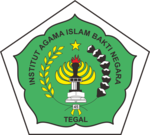Manajemen Ekstrakurikuler Pendidikan Anak Usia Dini (PAUD) dalam Meningkatkan Multiple Intelegensi
DOI:
https://doi.org/10.62490/latahzan.v11i2.50Keywords:
Management, Extracurricular, Education Early Childhood, Multiple Intelegensi.Abstract
This research examines the management of extracurricular education early childhood. It is backed by that implementation of extracurricular activities on early childhood education face varieties of constraints in management. Therefore, extracurricular activities, early childhood education is supposed to be managed thoughtfully. The management of extracurricular activities are good and true will effect positively to the quality of early childhood education. The qualitative research methodology is library research. Method of data collection by collecting reference books the subject matter and book supporters. Data analysis techniques are content analysis. Results of the study show that the extracurricular management, early childhood education is implemented through the following four stages: (1) plan a needs analysis, types, background, goals, budget, materials, assessment tools, schedule, facilities and infrastructure, output criteria instructors, (2) organize the Division of duties, authority and responsibilities of the personnel of extracurricular activities, (3) carry out extracurricular activities appropriate planning and organizing, and (4) evaluate extracurricular activities.
References
Ardy. W., Novan. Manajemen PAUD Bermutu. Konsep dan Praktik MMT di KB, TK/RA. Bandung: Remaja Rosdakarya, 2012.
Arikunto, Suharsimi & Yuliana, Lia. Manajemen Pendidikan. Yogyakarta: Aditya Media, 2012.
Badrudin. Manajemen Peserta Didik. Jakarta: Indeks, 2014.
Creswell, John. Riset Pendidikan. Perencanaan, Pelaksanaan dan Evaluasi Riset Kualitatif dan Kuantitatif. Terjemahan. Edisi kelima. Yogyakarta: Pustaka Pelajar, 2015.
El-Khuluqo, Ihsana. Manajemen PAUD. Pendidikan Taman Kehidupan Anak.
Yogyakarta: Pustaka Pelajar, 2015.
Denzin, Norman. K. & Lincoln, Yvonna. S. Handbook of Qualitative Research.Terjemahan. Yogyakarta: Pustaka Pelajar, 2009.
Farikhah, Siti. Manajemen Lembaga Pendidikan. Yogyakarta: Aswaja Pressindo, 2015.
Machali, Imam & Hidayat, Ara. The Handbook of Education Management, Teori dan Praktik Pegelolaan Sekolah/Madrasah di Indonesia. Jakarta: Prenamedia, 2016.
Mesiono. Manajemen Raudhatul Athfal (RA), Pengantar Teori dan Praktik, Jakarta: Prenadamedia Group, 2017.
Mulyasa, E. Manajemen PAUD. Bandung: Remaja Rosdakarya, 2012.
Munastiwi, Erni. Jurnal Manajemen Pendidikan Islam. Manajeme
Ekstrakurikuler Pendidikan Anak Usia Dini (PAUD).Volume 3, Nomor 2, November 2018/1440 P-ISSN : 2502-9223; E-ISSN : 2503-4383
Mursid. Pengembangan Pembelajaran PAUD. Bandung: Remaja Rosdakarya, 2015.
Peraturan Menteri Pendidikan dan Kebudayaan Nomor 62 Tahun 2014 tentang Kegiatan Ekstrakurikuler untuk Pendidikan Dasar dan Menengah.
Prihatin, Eka. Manajemen Peserta Didik. (Bandung: Alfabeta, 2011).
Setiawan, Ebta. Kamus Besar Bahasa Indonesia Daring , Badan Pengembangan dan Pembinaan Bahasa, Kemendikbud Pusat Bahasa 2016 https://kbbi.web.id/ekstrakurikuler.html
Suyadi. Manajemen PAUD,TPA-KB-TK/RA. Yogyakarta: Pustaka Pelajar, 2011.
Ulfah, Fari. Manajemen PAUD. Pengembangan Jejaring Kemitraan Belajar.
Yogyakarta: Pustaka Pelajar, 2015.
Undang-Undang Republik Indonesia Nomor 20 Tahun 2003 Tentang Sistem
Pendidikan Nasional.
Zed, Mestika. Metode Penelitian Kepustakaan. Yogyakarta: Penerbit Yayasan
Obor Indonesia, 2018.
Downloads
Published
How to Cite
Issue
Section
License
Copyright (c) 2019 Eni Rakhmawati

This work is licensed under a Creative Commons Attribution-ShareAlike 4.0 International License.
The copyright of the received article shall be assigned to the journal as the publisher of the journal. The intended copyright includes the right to publish the article in various forms (including reprints). The journal maintains the publishing rights to the published articles.
In line with the license, authors and any users (readers and other researchers) are allowed to share and adapt the material. In addition, the material must be given appropriate credit, provided with a link to the license, and indicated if changes were made. If authors remix, transform, or build upon the material, authors must distribute their contributions under the same license as the original.
















